
Alphabetical Menu
Chronological Menu
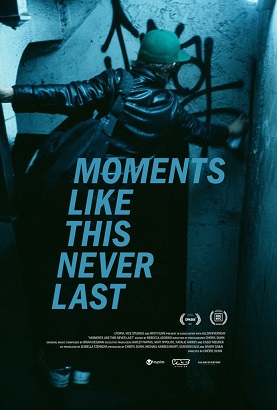
Moments Like This Never Last, directed by Cheryl Dunn, is a stylish and invigorating documentary about a stylish and invigorating artist, Dash Snow, who joined the New York City art scene in the late 1990s and early 200s as a graffiti artist, photographer, collage artist and sculptor before dying of a heroin overdose in 2009. Dunn deftly combines archival footage of Snow and interviews with his artist friends like, Dan Colen, along with art dealer/curator Jeffrey Deitch, curator Neville Wakefield, filmmaker Larry Clark and actor/gallery director Leo Fitzpatrick. Snow was a rebel, and he expressed and channeled that side of him through his art which included photographs of sex, drugs and violence. His art was raw and unflinching. As a human being, Snow was also raw, honest and free-spirited. He was born into a rich family, namely, the de Menil family, and was estranged from them, yet he managed to form his own surrogate family through his artist friends. That's a very inspirational and heartwarming fact about him. Dunn doesn't shy away from showing how he struggled with drug and alcohol addiction. He was deeply troubled as a human being and also deeply talented as an artist. Those two elements aren't mutually exclusive--in fact, many artists made their artwork while concurrently suffering and struggling. Dunn, who's also one of Snow's friends, should be commended for not judging him. She also doesn't ask the audience to judge him, either. Through Moments Like This Never Last, you get to experience Dash Snow as both an artist and well as a human being. At a running time of 1 hour and 39 minutes, it's a well-edited, illuminating and thoroughly captivating documentary. It opens via Utopia at Quad Cinema. 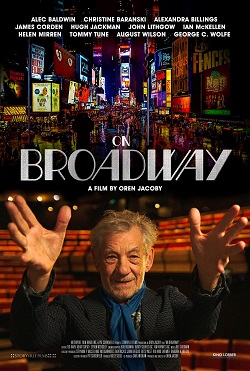
On Broadway, directed by Oren Jacoby, is a documentary that gives a look at a very broad topic: Broadway. If you're a neophyte when it comes to theaters, you'll learn about the history of Broadway from its rise to popularity decades ago, its decline in popularity during the late 60's and early 70's until its popularity today. Topics like how the AIDS epidemic affected the theater world and how some shows faced money problems are touched upon. Shows like Cats and Angels in America are discussed as well as what made them so significant. Ian McKellen, Helen Mirren and other talented actors also chime in with their insights from their perspectives on Broadway. Jacobi covers a lot of ground and assembles a lot of archival footage to show the history of Broadaway, but, no pun intended, the documentary feels a bit too broad and bites off more than it could chew. It's essentially like a reader's digest version of Broadway's histories and the struggles that came along with it. A documentary that's broad should eventually become grounded, but, to be fair, that's no easy task. It's much easier to start with a narrow, focused topic, like the doc Fiddler: A Miracle of Miracles did, and then broaden the film into larger themes to add more scope. The scope in this doc is too wide. Concurrently, it doesn't say anything new or surprising, so while it's never dull, it's far from illuminating or profound nor is it essential viewing for any theater buffs. On Broadway opens via Kino Lorber at Quad Cinema. Confetti 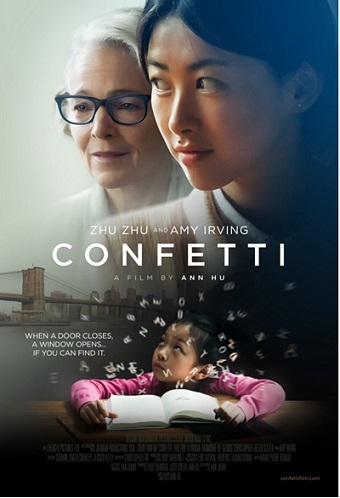
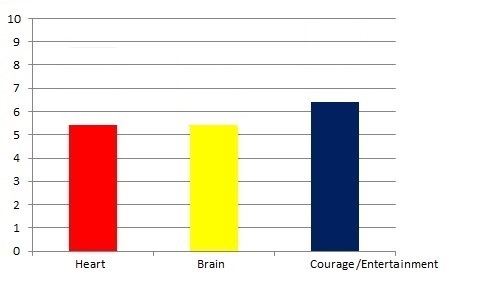 Flag Day 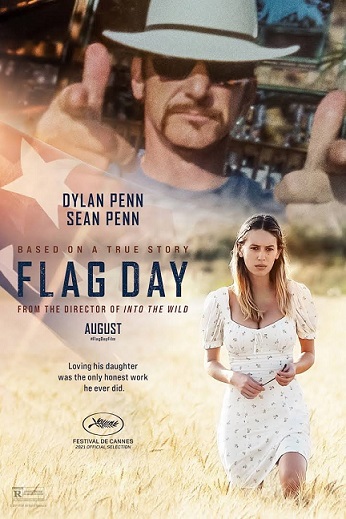 Jennifer Vogel (Dylan Penn) reconnects with her father, John (Sean Penn), a con man who abandoned her and her mother, Patty (Katheryn Winnick), during her childhood. When John gets arrested for printing $22 million in counterfeit money, Jennifer recalls her childhood memories including the time when she and her younger brother Nick (Cole Flynn and, later, Beckam Crawford) moved in with their uncle (Josh Brolin). Based on Jennifer Vogel's memoir, Flim-Flam Man: The True Story of My Father's Counterfeit Life, the screenplay by Jez Butterworth and John-Henry Butterworth begins in 1992 as Jennifer learns that her father has been arrested before flashing back to the 70's and 80's to Jennifer's childhood and young adult years. Although Flag Day has crime thriller elements because John acts increasingly shady, it focuses more on the relationship between him and Jennifer. The evolving dynamics between them throughout Jennifer's life makes for an equally moving and gripping experience. Anyone who's ever had a toxic relationship with a family member would be able to relate. What makes the film truly relatable, though, is that both Jennifer and John are written as complex human beings despite their flaws. John could have easily been written as a villain and, at times, he seems like one on the surface because he's a compulsive liar with anger and boundary issues. He's a broken human being who appears to be strong on the outside, but on the inside, he's a weak coward who's still a child. He's a human being who probably doesn't recognize his own humanity and dehumanizes himself---otherwise he wouldn't have been so abusive to others. Jennifer has a lot of courage for taking the risk to face him later in life and to come to terms with her abusive childhood---and more importantly, to rise above it. Just because her father is a broken man who broke Jennifer doesn't mean that she has to be just as abusive as him. She understands that she has the ability to break the cycle of abuse if she wants to. Does she expect some sort of validation from him about her feelings? Does she hope that he'll change into a decent human being? The answers to those questions aren't quite clear, even through the voice over, so they're left open to the audience's interpretation. At times, the dialogue leaves room for that as well as subtlety while other times it's a little too on-the-nose, but it always remains emotionally resonating and even insightful occasionally. Most importantly, director Sean Penn and the screenwriters don't ask you to judge John or anyone else, but rather to experience them and see them as flawed, vulnerable human beings. Sean Penn and Dylan Penn both give deeply moving performances that further ground the movie in authenticity. Their scenes together are exhilarating, raw and heartbreaking without veering into maudlin moments or melodrama. Even during the parts when the screenplay doesn't cut deep on an emotional level, their performances compensate for it. They both exude charisma which also helps to breathe life into the film. The editing incorporates the flashbacks and voice-over narration into the story in a way that feels organic without confusing the audience; if it were to jump back and forth too much or feel choppy, it would've been nauseating and much less engrossing. At a running time of 1 hour and 47 minutes, Flag Day is powerful, gripping and heartfelt. It's a triumph! 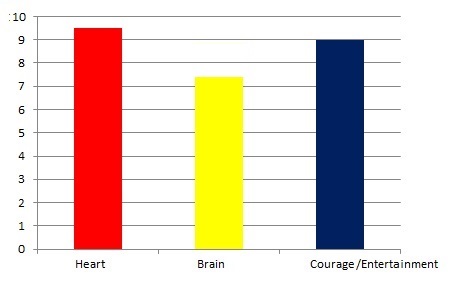 Paw Patrol: The Movie  The Paw Patrol come to the rescue when they learn that Mayor Humdinger (voice of Ron Pardo) of Adventure City wants to wipe out all of the dogs with a device called the Cloud Catcher. Chase (voice of Ian Armitage), a German Shepherd, leads the way to Adventure City along with the Paw Patrol's human leader, Ryder (voice of Will Brisbin), to try to stop the mayor's nefarious plans. Paw Patrol: The Movie is a surprisingly witty and fun animated film that's equally entertaining for both adults and children. The screenplay by Billy Frolick, Cal Brunker and Bob Barlen has just the right blend of comedy, action and thrills without pandering or infantilizing to older audiences like some children's movies do. The plot remains easy-to-follow for kids while adults will appreciate some of the political satire that will probably go over most of the kids' heads. Even though the film does get silly and zany at times, there's nothing over-the-top or awkward to be found--this isn't cringe-worthy like the G-rated Oogieloves in the Big Balloon Adventure, after all. Also, Paw Patrol: The Movie has a surprising amount of heart and a positive message to teach to kids without being too saccharine or preachy. The villain is pretty one-note like villains usually are in children's movies, but at least there's nothing too scary about him for kids; he's evil in a goofy way like Gargamel in The Smurfs. The CGI animation looks great and has plenty of colorful eye candy to marvel little kids. Everything from the pacing to the editing and musical score also helps to keep the film moving along without any dull scenes that drag. It's also worth mentioning that the dogs look very cute, warm and lovable. You'll have to be made out of stone not to be charmed by them. At an ideal running time of 1 hour and 27 minutes, Paw Patrol: The Movie is funny, delightful and heartfelt. Kids will love it! 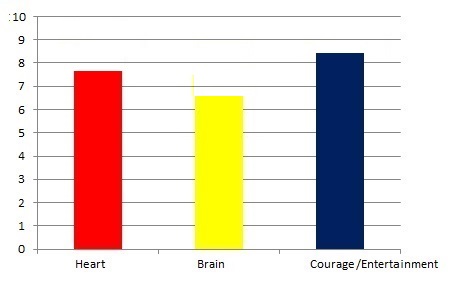 The Protégé 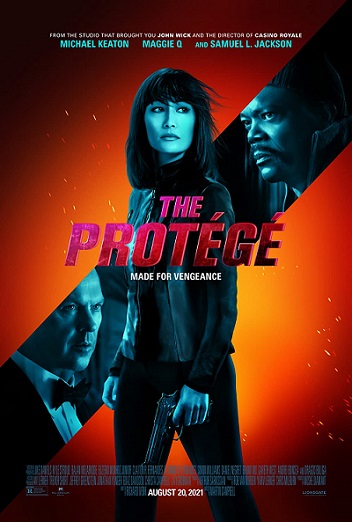
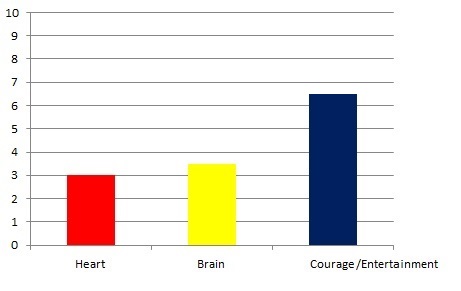 Reminscence 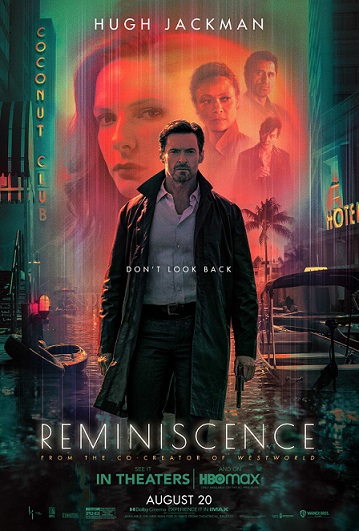
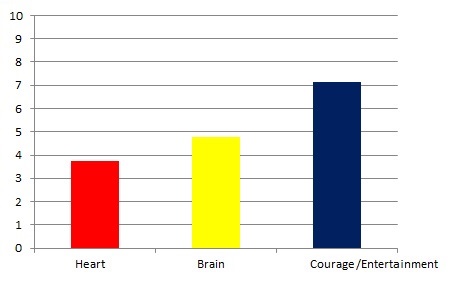 Wildland 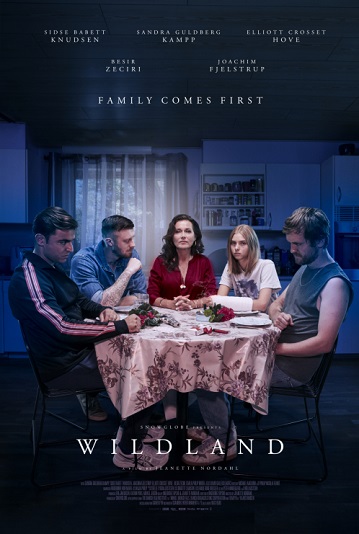 After her mother dies in a car accident, 17-year-old Ida (Sandra Guldberg Kampp) moves in with her aunt, Bodil (Sidse Babett Knudsen), and her three sons, Mads (Besir Zeciri), David (Elliott Crosset Hove) and Jonas (Joachim Fjelstrup). She gets caught up in the family's secret life of crime which puts her own life in danger.
The screenplay by Ingeborg Topsře dives right into the meat of the story by starting with the car accident that leaves Ida an orphan. By eschewing the first act that could've shown the relationship between Ida and her mother, she trusts the audience's imagination and intelligence to figure out on their own what kind of a life Ida had at home with her mother. In other words, there's minimal exposition as you're thrown right into the tragedy of Ida's life. Ida comes across as shy, introverted and decent, but, like any child, she's impressionable and sensitive. She's not used to the kind of dangerous lifestyle that Bodil and her sons live. The three brothers take drugs, drink alcohol and have no shame in using their guns. It would be tempting to judge them if the screenplay didn't treat them as human beings. Yes, they're unlikable, toxic and lack boundaries, but they're also enabled by their mother, Bodil, who's even more toxic and a terrible role model. Despite how strong Bodil and her sons are on the outside, on the inside they're very weak and cowardly. Ida is much stronger than them, ironically, because it takes a lot of strength to be decent. The clash between Ida and Bodil's family generates the majority of the film's tension as Ida struggles to escape from what's essentially a kind of prison where Bodil serves as the warden. Bodil is just as much of an interesting character as Ida is. On the one hand, she seems warm and loving toward Ida. She keeps her fed, clothed and shelters her. On the other hand, she doesn't fulfill the basic duty of a parent to her nor to her sons because she doesn't protect them from harm, both from herself and from others. It would be interesting to ponder what Bodil's own mother and father were like and if Ida's mother even knew about her sister's dark secret. Wildland stays lean, though, while avoiding flashbacks, voice-over narration and over-explaining which plagues too many Hollywood movies. Surprisingly, there's very little violence and gore. This isn't Gomorrah, after all, but it's just as powerful. The filmmakers focus unflinchingly on the emotional grit rather than on the physical grit which makes the film all the more emotionally devastating. Sandra Guldberg Kampp gives a tender performance as Ida and portrays her vulnerability and innocence very convincingly. Sidse Babett Knudsen is just as remarkable as Jackie Weaver is in Animal Kingdom while effectively tackling the warmth of her role as well as the dark, menacing side. She essentially has to play two roles, a loving mother and a dangerous crime lord, which she does very well. It's also worth mentioning the editing by Michael Aaglund which allows the film to flow at a natural pace without any awkward transitions. The fact that he and directorJeanette Nordahl keep the running time down to just 1 hour and 29 minutes is a testament to their restraint as filmmakers and skills of efficient storytelling without treading water with a bloated, overlong running time (I'm looking at you, The Irishman). Wildland is an unflinchingly dark, emotionally devastating and haunting portrait of a dysfunctional family. 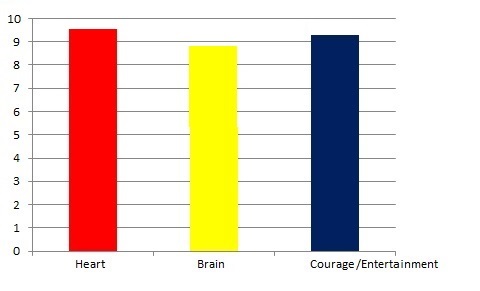 |